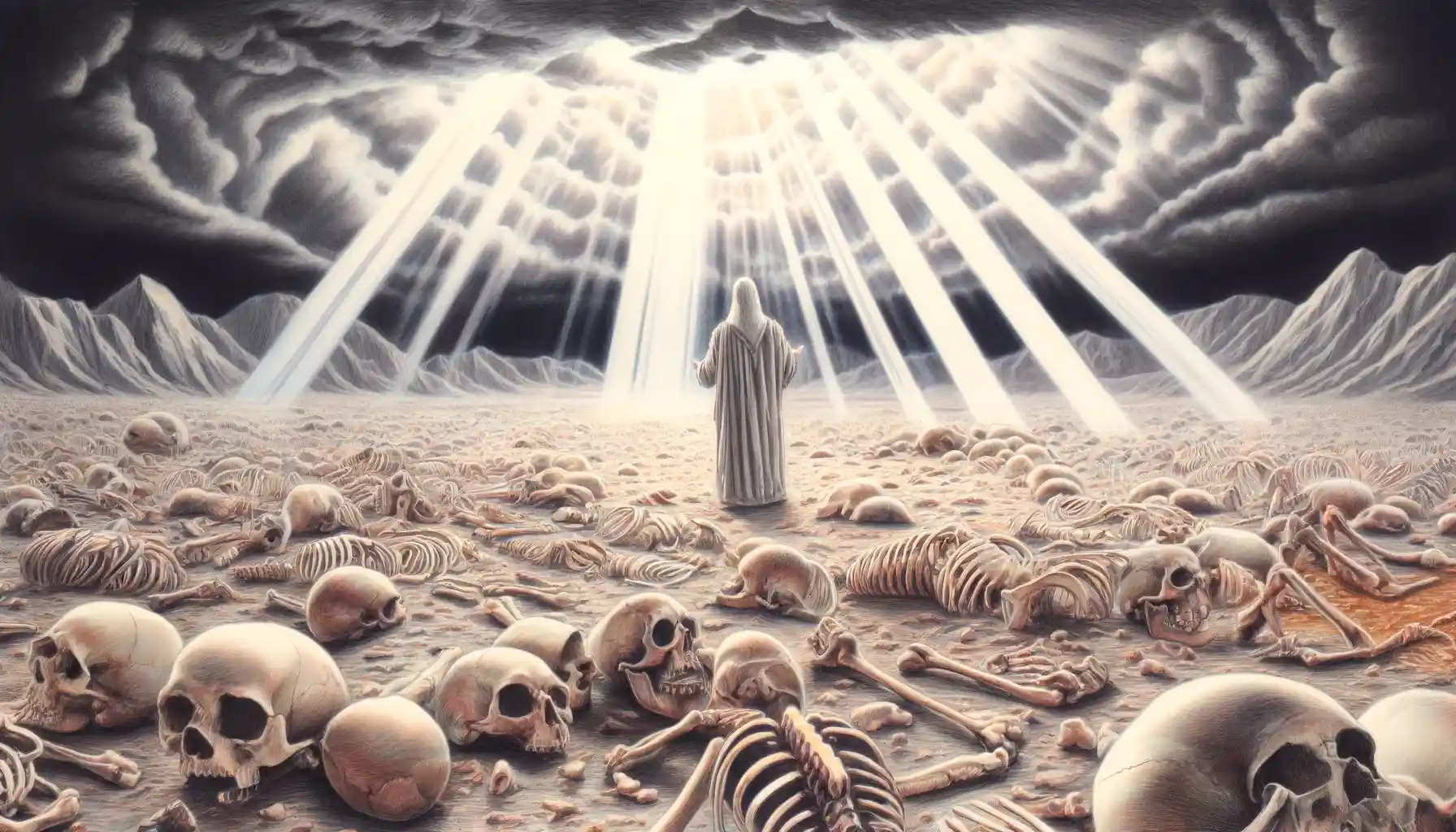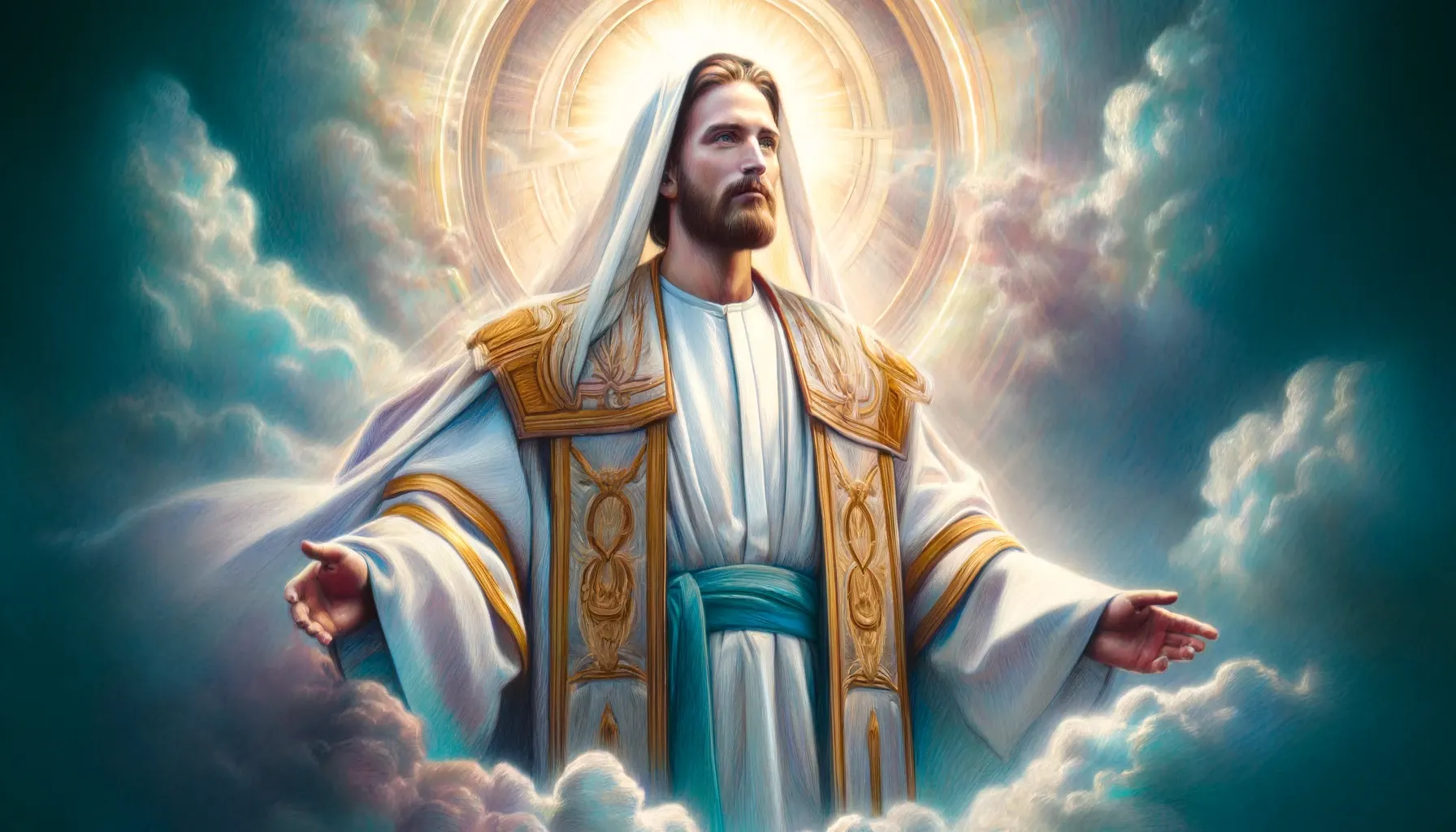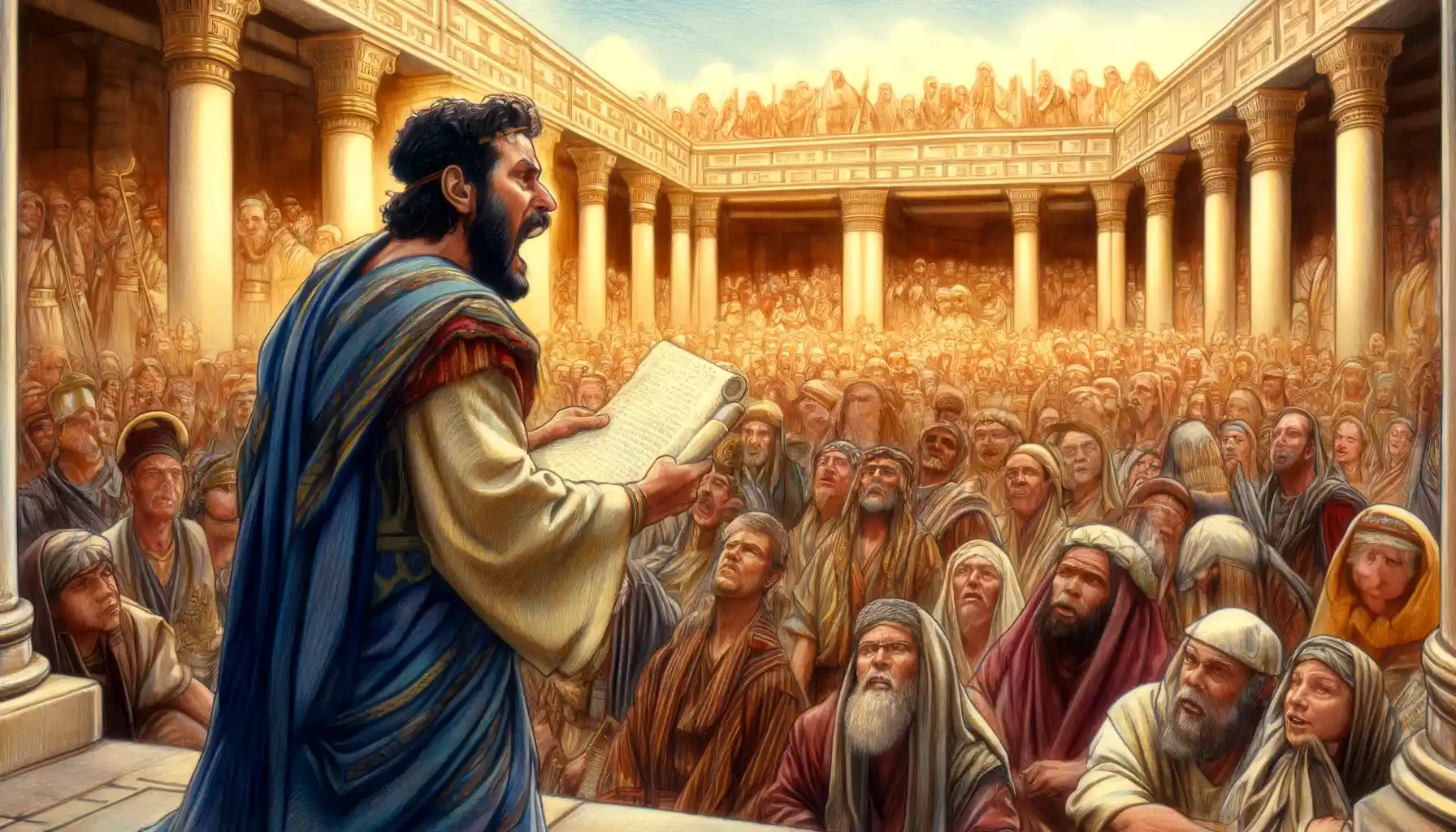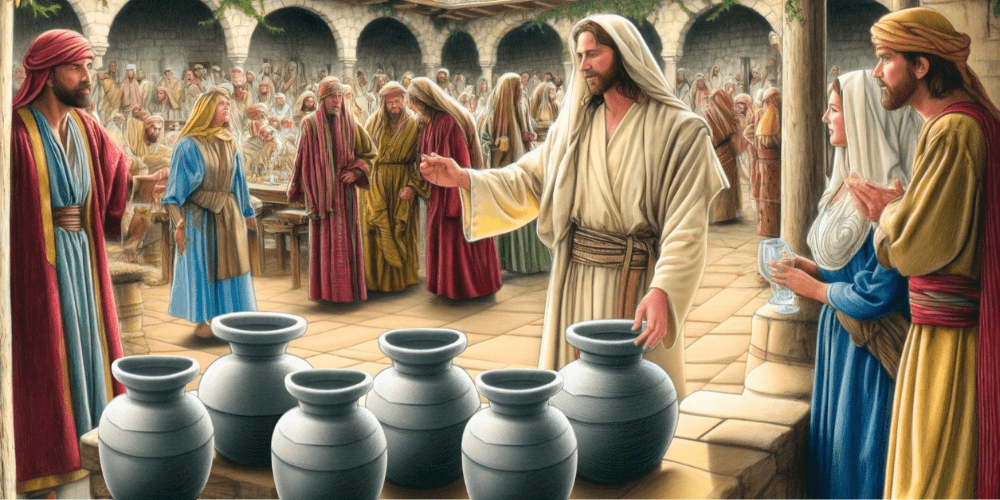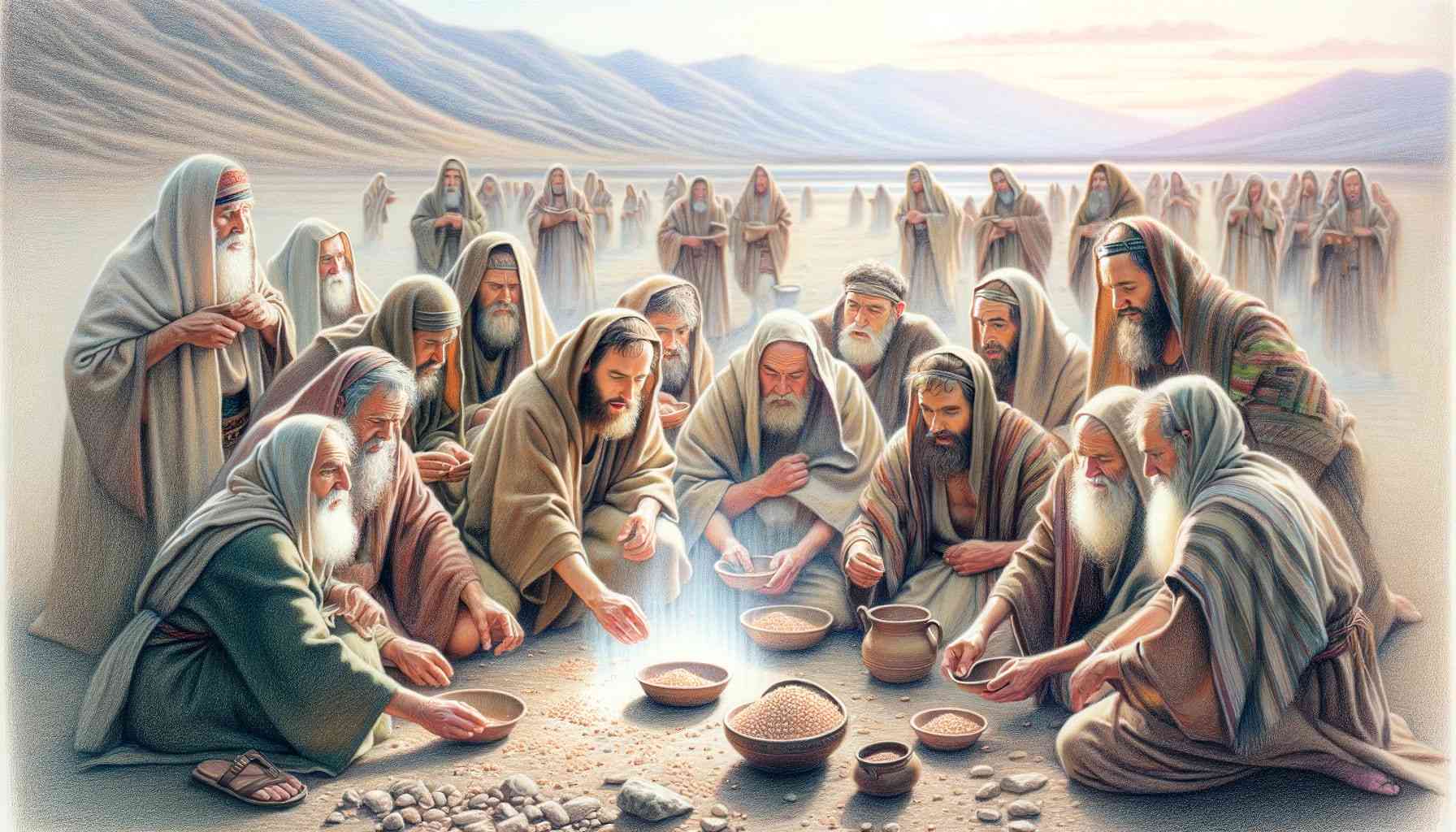Ezekiel, a prophet and priest during the Babylonian exile, is best known for his symbolic visions, including the vision of the valley of dry bones, which conveyed messages of hope, restoration, and divine presence to the exiled Israelites.
The Book of Hebrews presents Jesus Christ as the supreme revelation of God, emphasizing His superiority over all other forms of revelation and urging believers to place their trust fully in Him for salvation and perseverance in the faith.
Jeremiah’s messages, marked by their intensity and range from despair to hope, offer a deep exploration of the challenges and responsibilities of being in a covenant relationship with God.
In the biblical story from John 2, Jesus performs His first miracle by turning water into wine at a wedding feast in Cana, Galilee, symbolizing transformation and the inauguration of the New Covenant, with His disciples, Mary, and other guests witnessing this profound event.
The narrative of Manna from Heaven in Exodus 16, rich in biblical theology, highlights divine provision, tests of obedience and trust, emphasizes Sabbath observance, signifies a covenant relationship, points to eschatological fulfillment in Christ, and underscores the importance of community and unity among God’s people.

